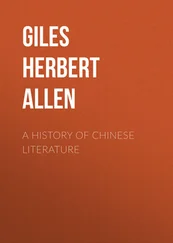I have undertaken to write a history of a literature and to ascertain the psychology of a people; in selecting this one, it is not without a motive. A people had to be taken possessing a vast and complete literature, which is rarely found. There are few nations which, throughout their existence, have thought and written well in the full sense of the word. Among the ancients, Latin literature is null at the beginning, and afterward borrowed and an imitation. Among the moderns, German literature is nearly a blank for two centuries. [7]Italian and Spanish literatures come to an end in the middle of the seventeenth century. Ancient Greece, and modern France and England, alone offer a complete series of great and expressive monuments. I have chosen the English because, as this still exists and is open to direct observation, it can be better studied than that of an extinct civilization of which fragments only remain; and because, being different, it offers better than that of France very marked characteristics in the eyes of a Frenchman. Moreover, outside of what is peculiar to English civilization, apart from a spontaneous development, it presents a forced deviation due to the latest and most effective conquest to which the country was subject; the three given conditions out of which it issues—race, climate, and the Norman conquest—are clearly and distinctly visible in its literary monuments; so that we study in this history the two most potent motors of human transformation, namely, nature and constraint, and we study them, without any break or uncertainty, in a series of authentic and complete monuments. I have tried to define these primitive motors, to show their gradual effects, and explain how their insensible operation has brought religions and literary productions into full light, and how the inward mechanism is developed by which the barbarous Saxon became the Englishman of the present day.
[1]Darwin, "The Origin of Species." Prosper Lucas, "De l'Hérédité."
[2]Spinosa, "Ethics," part IV., axiom.
[3]For this scale of coordinate effects consult, "Langues Sémitiques," by Renan, ch. I; "Comparison des civilisations Grecque et Romaine," vol. I., ch. I., 3d ed., by Mommsen; "Conséquences de la démocratie," vol. III., by De Tocqueville.
[4]"L'Esprit des Lois," by Montesquieu; the essential principles of the three governments.
[5]The birth of the Alexandrine philosophy is due to contact with the Orient. Aristotle's metaphysical views stand alone. Moreover, with him as with Plato, they afford merely a glimpse. By way of contrast see systematic power in Plotinus, Proclus, Schelling, and Hegel, or again in the admirable boldness of Brahmanic and Buddhist speculation.
[6]I have very often made attempts to state this law, especially in the preface to "Essais de Critique et d'Histoire."
[7]From 1550 to 1750.
Table of Contents
Table of Contents
SECTION I.—The Coast of the North Sea
Table of Contents
As you coast the North Sea from the Scheldt to Jutland, you will mark in the first place that the characteristic feature is the want of slope; marsh, waste, shoal; the rivers hardly drag themselves along, swollen and sluggish, with long, black-looking waves; the flooding stream oozes over the banks, and appears further on in stagnant pools. In Holland the soil is but a sediment of mud; here and there only does the earth cover it with a crust, shallow and brittle, the mere alluvium of the river, which the river seems ever about to destroy. Thick clouds hover above, being fed by ceaseless exhalations. They lazily turn their violet flanks, grow black, suddenly descend in heavy showers; the vapor, like a furnace-smoke, crawls forever on the horizon. Thus watered, plants multiply; in the angle between Jutland and the continent, in a fat muddy soil, "the verdure is as fresh as that of England." [8]Immense forests covered the land even after the eleventh century. The sap of this humid country, thick and potent, circulates in man as in the plants; man's respiration, nutrition, sensations and habits affect also his faculties and his frame.
The land produced after this fashion has one enemy, to wit, the sea. Holland maintains its existence only by virtue of its dykes. In 1654 those in Jutland burst, and fifteen thousand of the inhabitants were swallowed up. One need only see the blast of the North swirl down upon the low level of the soil, wan and ominous: [9]the vast yellow sea dashes against the narrow belt of flat coast which seems incapable of a moment's resistance; the wind howls and bellows; the sea-mews cry; the poor little ships flee as fast as they can, bending almost to the gunwale, and endeavor to find a refuge in the mouth of the river, which seems as hostile as the sea. A sad and precarious existence, as it were face to face with a beast of prey. The Frisians, in their ancient laws, speak already of the league they have made against "the ferocious ocean." Even in a calm this sea is unsafe. "Before me rolleth a waste of water... and above me go rolling the storm-clouds, the formless dark gray daughters of air, which from the sea, in cloudy buckets scoop up the water, ever wearied lifting and lifting, and then pour it again in the sea, a mournful, wearisome business. Over the sea, flat on his face, lies the monstrous terrible North wind, sighing and sinking his voice as in secret, like an old grumbler, for once in good humor, unto the ocean he talks, and he tells her wonderful stories." [10]Rain, wind, and surge leave room for naught but gloomy and melancholy thoughts. The very joy of the billows has in it an inexplicable restlessness and harshness. From Holland to Jutland, a string of small deluged islands [11]bears witness to their ravages; the shifting sands which the tide drifts up obstruct and impede the banks and entrance of the rivers. [12]The first Roman fleet, a thousand sail, perished there; to this day ships wait a month or more in sight of port, tossed upon the great white waves, not daring to risk themselves in the shifting winding channel, notorious for its wrecks. In winter a breast-plate of ice covers the two streams; the sea drives back the frozen masses as they descend; they pile themselves with a crash upon the sandbanks, and sway to and fro; now and then you may see a vessel, seized as in a vice, split in two beneath their violence. Picture, in this foggy clime, amid hoar-frost and storm, in these marshes and forests, half-naked savages, a kind of wild beasts, fishers and hunters, but especially hunters of men; these are they, Saxons, Angles, Jutes, Frisians; [13]later on, Danes, who during the fifth and the ninth centuries, with their swords and battle-axes, took and kept the island of Britain.
A rude and foggy land, like their own, except in the depth of its sea and the safety of its coasts, which one day will call up real fleets and mighty vessels; green England—the word rises to the lips and expresses all. Here also moisture pervades everything; even in summer the mist rises; even on clear days you perceive it fresh from the great sea-girdle, or rising from vast but ever slushy meadows, undulating with hill and dale, intersected with hedges to the limit of the horizon. Here and there a sunbeam strikes on the higher grasses with burning flash, and the splendor of the verdure dazzles and almost blinds you. The overflowing water straightens the flabby stems; they grow up, rank, weak, and filled with sap; a sap ever renewed, for the gray mists creep under a stratum of motionless vapor, and at distant intervals the rim of heaven is drenched by heavy showers. "There are yet commons as at the time of the Conquest, deserted, abandoned, [14]wild, covered with furze and thorny plants, with here and there a horse grazing in solitude. Joyless scene, unproductive soil! [15]What a labor it has been to humanize it! What impression it must have made on the men of the South, the Romans of Cæsar! I thought, when I saw it, of the ancient Saxons, wanderers from West and North, who came to settle in this land of marsh and fogs, on the border of primeval forests, on the banks of these great muddy streams, which roll down their slime to meet the waves. [16]They must have lived as hunters and swineherds; growing, as before, brawny, fierce, gloomy. Take civilization from this soil, and there will remain to the inhabitants only war, the chase, gluttony, drunkenness. Smiling love, sweet poetic dreams, art, refined and nimble thought, are for the happy shores of the Mediterranean. Here the barbarian, ill housed in his mud-hovel, who hears the rain pattering whole days among the oak leaves—what dreams can he have, gazing upon his mud-pools and his sombre sky?"
Читать дальше












